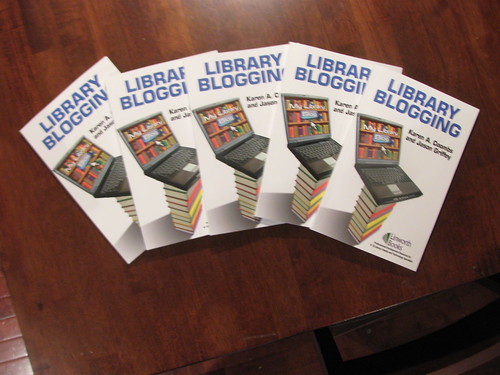The old standard for the Encyclopedia, the Encyclopaedia Britannica, has just launched a new service called Britannica Webshare that is designed to pull the aging reference work into the 21st Century. It also proves the argument put forth by Chris Anderson in his article (and upcoming book) Free.
The central idea of Webshare is that Britannica is giving away access to its online content for free, by giving away subscriptions to its paywall-side service. But not just to anyone, no, no. They are giving a $0 subscription for one year to “Anyone who publishes regularly on the Internet—bloggers, webmaster, and writers who publish on the Web…”. You have to “apply” for the access, which implies some sort of winnowing of applications, although I applied and received an email with a login code within an hour. This code is a sort of coupon that gives you one year of free access to Britannica online, although you do have to fill out the normal application information for Britannica after you’ve already applied for the free access…a sloppy method of handling the process. Even better, the Terms of Service that you must agree to for the account includes things like:
Use of Content: You may display, print or download content on the Services only for your personal, non-commercial use, provided you do not remove or alter any copyright, trademark, service mark or other proprietary notices or legends. You may not publish, distribute, retransmit, sell or provide access to the content on the Services, except as permitted under applicable law and as described in these Terms of Use.
So even though the free account is for the purposes of content redistribution by blogs, in an attempt to gain mindshare on the ‘net against Wikipedia (please, we all know that’s what’s going on)…they haven’t changed the terms of service which would prohibit any blogger that makes any money from his or her blog (got ads? No Britannica for you!) from even using the service in the first place. I’m sure this is an “oversight” and that we’ll see some form of correction of this, but someone should have pointed it out in the first place.
Or worse, they really do mean it, and this is only for bloggers who don’t have any attempts at monetization going on. This blog is ad-free for now, but if I ever chose to use ads I certainly wouldn’t want to have to comb back through my blog to remove Britannica content from it. Oh, but you say “I’ll not put ads on my blog, so bully for me…I’ll use Britannica for all my encyclopedic blog entries.” The next paragraph in the Terms of Service says:
If you want to post, publish, or use content from (or contained within) the Services on your Web site or in any other Internet activity, you will need permission from Britannica, even though your Web site or Internet activity is free of charge.
Oh. Well then.
Which is it, Britannica? Do you want to push your product across the web via free access, or do you want us bound by your Terms of Service? Can’t have it both ways.
There’s also the tip-o-the-hat to Web 2.0 functionality with embeddable widgets for Britannica content, but the widgets are for things that Britannica gives you, not created by users. That is, they have pre-packaged widgets for a handful of subject areas, but I can’t go in and create my own. Not very 2.0, Brit.
In all, this is the right direction for Britannica to be going if they hope to ever be relevant in the 21st century, but they haven’t gone far enough. You need some serious added value at this point to compete. My suggestions: Go free for public access, with ads for revenue generation; Go paid for institutional access and make it worth their $$ by building tools to make it easy for librarians and such to make patrons lives easier. Widgets for use in Course Management Systems, subject page building built in to the site, and customizable RSS feeds that can be pulled by people into their own systems.
 How broken is copyright in the US? So broken that if you look at two different books, both published by the same publisher (Dodd, Mead & Co.), in the same year (1940), both with copyright notices, and neither with a copyright renewal…one is currently protected by copyright, and the other is in the public domain.
How broken is copyright in the US? So broken that if you look at two different books, both published by the same publisher (Dodd, Mead & Co.), in the same year (1940), both with copyright notices, and neither with a copyright renewal…one is currently protected by copyright, and the other is in the public domain.



